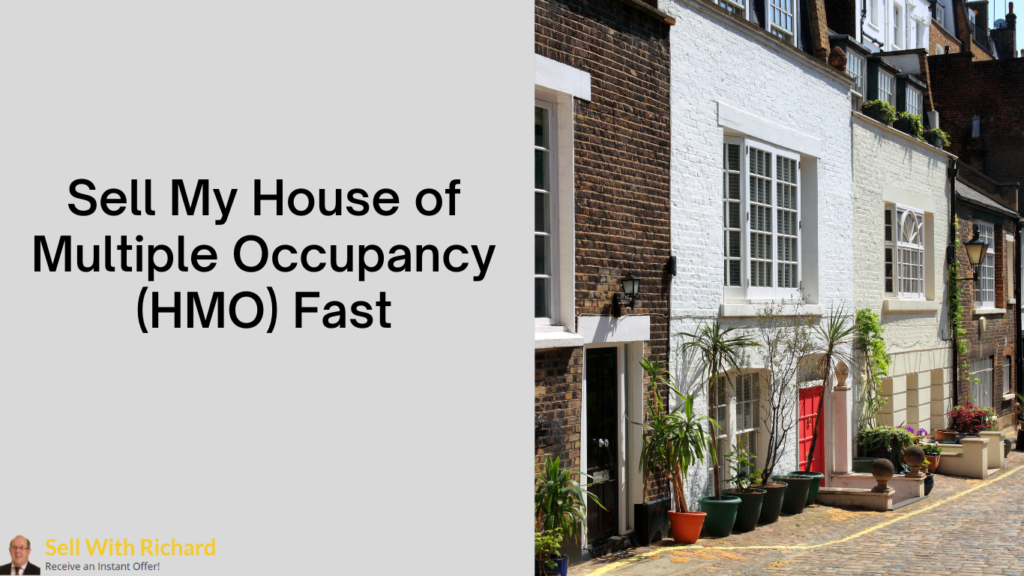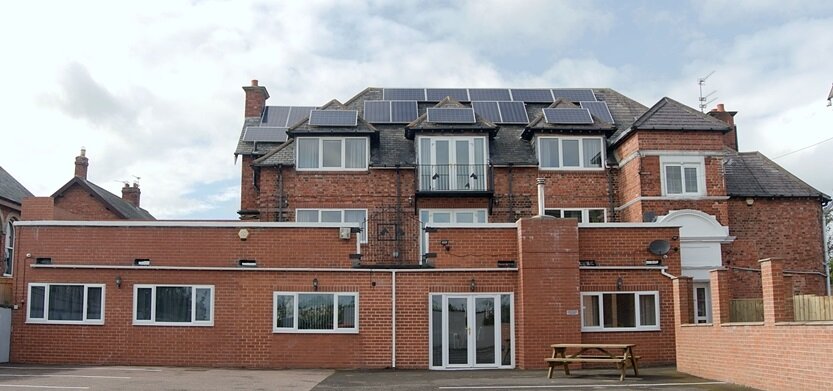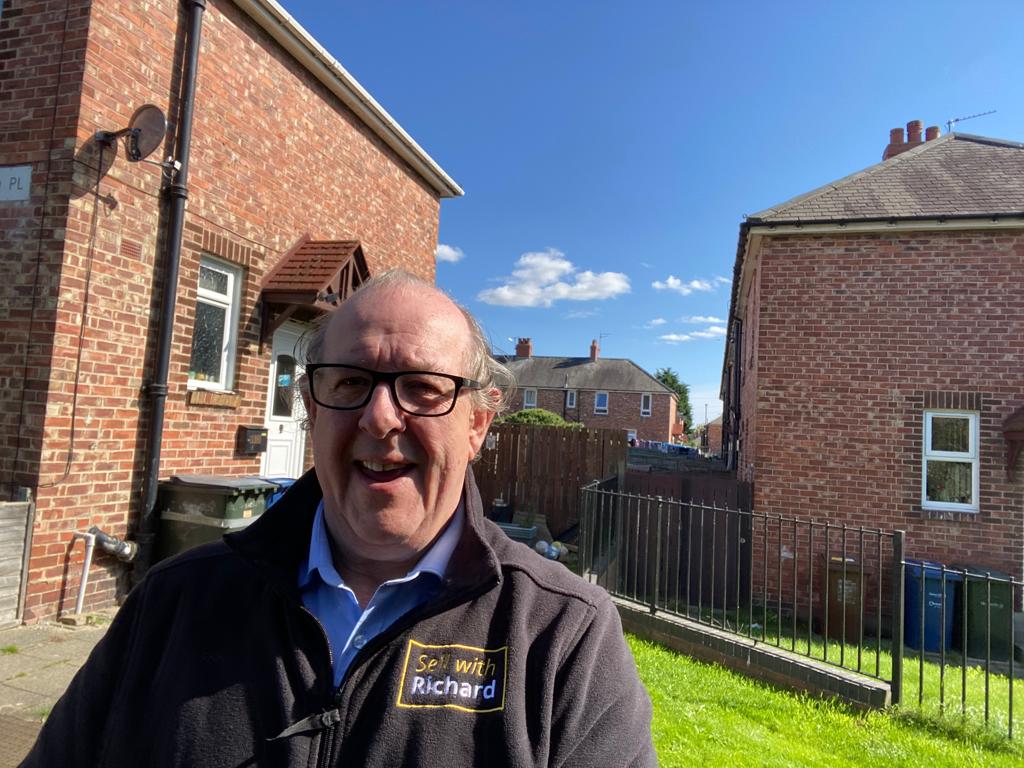
HMOs can provide landlords with a great income, but there are plenty of potential pitfalls too, and they’re not always easy to sell through a high street estate agent.
Before we dig into the details about how to sell your HMO, let’s take a look at what a HMO is and why you might consider selling your HMO.
What is a HMO?
HMO stands for ‘House of Multiple Occupancy’. This means a property that’s rented by three or more tenants who aren’t part of the same household or family. A typical example would be a student house in a university town, where all of the tenants pay rent individually and have use of the same shared facilities, such as the kitchen and bathroom.

Why Sell a HMO in Today’s Market?
On paper, HMOs tick a lot of boxes for landlords. Having 3+ tenants paying rent every month often leads to higher rental yields, and if the location is right then the property is likely to remain fully occupied at all times.
However, there are many reasons why you might consider selling your HMO. One of the key disadvantages of owning a HMO are the increased costs involved with owning them.
Firstly there’s the HMO licence that you’ll need to obtain from your local council. For larger HMOs with five or more occupants these are mandatory, and some local authorities require you to have one regardless of the number of occupants.
Section 24
Secondly, you’ve got the increased tax liability to consider, due in no small part to the introduction of Section 24. This piece of legislation was brought in by the government to stop the private rental sector from growing so quickly and essentially to make buy to let properties less profitable for landlords.
In a nutshell Section 24 gives private landlords less tax relief by taxing them on all of their rental income. Prior to Section 24 being introduced, costs such as mortgage interest, and admin fees were tax deductible, but since Section 24 came into effect it has closed off this avenue to landlords. In many cases it has even pushed them into a higher tax band, severely affecting the amount of profit they make on their properties.
Another knock-on effect of Section 24 on private landlords is the increased competition it has created. Arguably, the simplest way around the issue is to increase rent for tenants, however this is easier said than done in a competitive marketplace. If tenants feel that the rent is above market rate, they’re highly likely to find another place to live.
Increased competition also comes in the form of private limited companies, because Section 24 only applies to private landlords. So, unless you form your own company to manage your rental properties, you’ll find yourself at an immediate disadvantage to those companies already operating.
Increased Building Costs
One final disadvantage of owning a HMO are the potential renovation costs you’ll incur to in order to be eligible for a HMO licence.
There are several compliance measures that you’ll need to meet regarding things like gas safety certificates and smoke alarms for example.
However, the biggest potential cost concerns the minimum room sizes that you’ll need to adhere to in order to meet building regulations. Some properties aren’t suitable to be HMOs, or they can be very expensive to convert.
Want to sell your rental property? Get Started Now…
We help landlords sell their rental property and move on . There are no commissions or fees and no obligation whatsoever. Start below by giving us a bit of information about your property or call 0191 486 2386 …
How to Value a HMO

As you’ve probably realised, valuing a HMO is not as simple as valuing a normal property, and it’s therefore wise to contact a HMO specialist rather than a high street estate agent.
Essentially though, there are generally two key ways in which HMOs are valued.
Bricks & Mortar Valuation
This is the most common method of valuation, and it’s typically used to value a smaller HMO, such as a 3 or 4 bedroom property.
Much like a normal property valuation, this takes into account the location and condition of the HMO. Regarding location, this not only refers to which part of the UK it’s in, but its location within that town or city. For example, if it’s closer to a train station than another HMO it will likely have a higher value.
In addition to location and condition, other factors such as the quality of the tenants and the tenant demand in the area are also taken into account, along with the size of the rooms and compliance with HMO regulations.
Commercial Valuation
This usually applies to larger HMOs, especially any that have 9+ bedrooms, and in some cases between 6 and 9 bedrooms.
These valuations are also known as investment or yield valuations, because they take the HMO’s potential income into account. They still look at the same basics as the bricks & mortar valuation, such as location, but they’re focused more on the annual net rent of the HMO. For example, a 10 bedroom property that’s rented out at £1000 per room will generate a gross annual rent of £120,000. The valuation will then use this figure minus any operating costs.
What Documents are Needed to Sell an HMO?
There are a number of additional documents that are recommended when selling an HMO compared with a normal property. Some are mandatory, but all are strongly advised for a swift sale. These include:

- HMO Floor Plan
- Building Regulation Certificate
- HMO Planning Documentation
- Fire Alarm Certificate
- HMO License Certificate
- Electrical Safety Certificate
- Tenant Details and Payment Schedule
- Energy Performance Certificate
Should I Sell a HMO With or Without Tenants?
There’s no right answer to this, but the ideal scenario for most HMO buyers is a fully occupied HMO with no tenants in rent arrears.
A HMO with difficult tenants can be tricky, as it’s not a quick or easy process to evict someone, while an empty HMO could be a drain on a buyer’s resources if it’s not occupied quickly.
Ultimately though, it’s entirely down to the buyer, and finding one who will buy the HMO as it is.
How to Choose the Right Buyer for a HMO
As mentioned earlier, HMOs are a specialist part of the property market and as a result there are usually fewer potential buyers for them.
Because they are so specialised, some of the things you should look to find out include, whether the buyer owns or has owned a HMO before, how they intend to finance it, and whether or not they understand the intricacies of a HMO.
The ideal buyer is someone who already owns a HMO, or who has the finance in place already to make the purchase quickly.
Many buyers are drawn in by the potential returns of a HMO but when it comes to actually finding the capital to finance a purchase, they’re unable to do so.
If you’re looking to sell your HMO fast, then don’t hesitate to get in touch with us. At Sell With Richard, we are experienced HMO specialists and we can complete the purchase on a closing date to suit you.
Want to sell your rental property? Get Started Now…
We help landlords sell their rental property and move on . There are no commissions or fees and no obligation whatsoever. Start below by giving us a bit of information about your property or call 0191 486 2386 …

About Richard Mews
Richard has 31+ years of property experience, has been Chairman of several regeneration committees and has helped more than 600 homeowners and landlords get easy, stress-free personal solutions for selling their property. Richard’s goal is to give you unbiased help to receive a quick house sale, even if that means not working with him.
Let’s connect:




